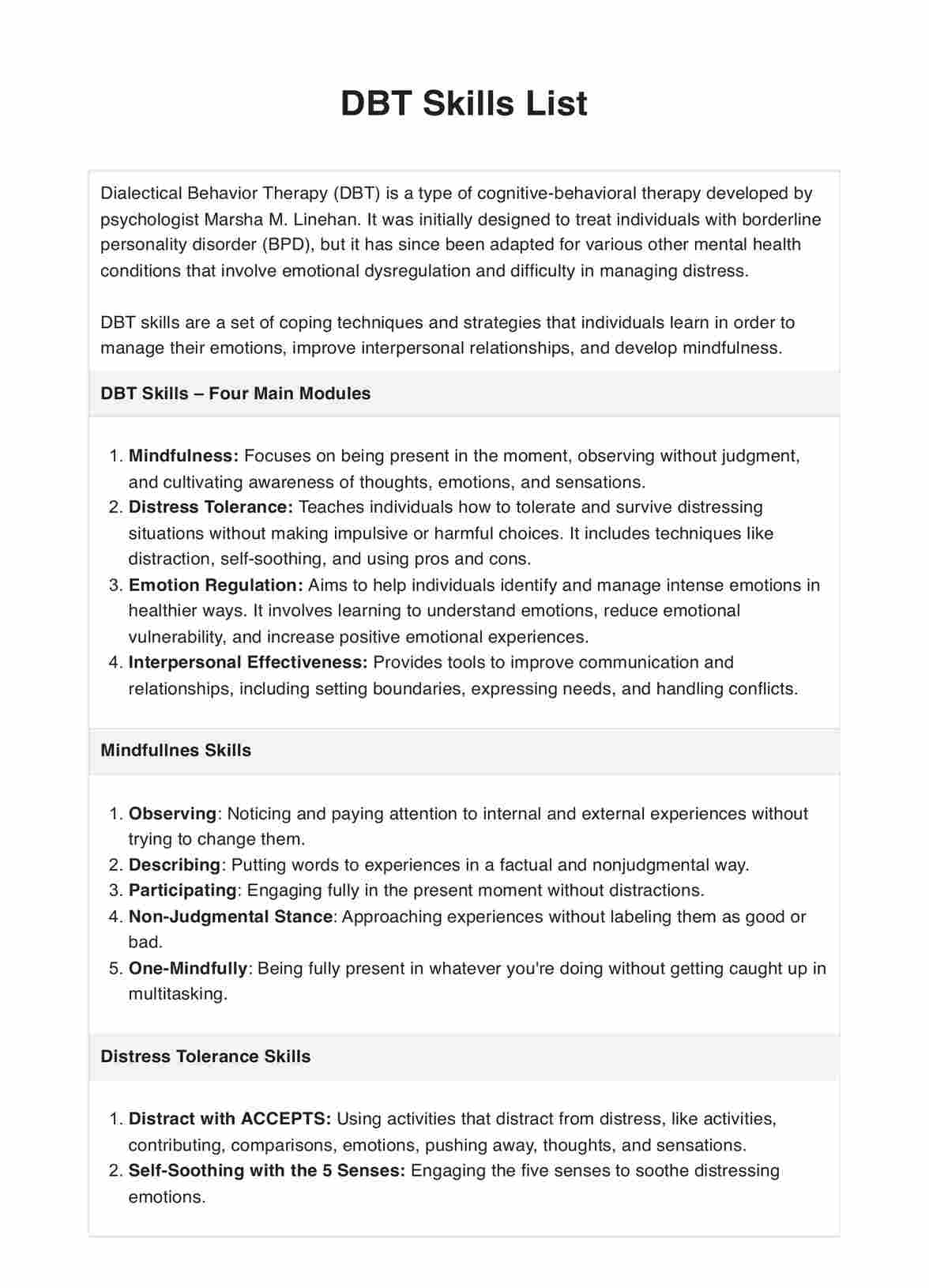Mental health professionals specializing in dialectical behavior therapy use the DBT Skills List to guide clients in effectively addressing their challenges.

DBT Skills Lists
Utilize this free DBT Skills List to help individuals develop strategies to manage their emotions and improve relationships. Download the free PDF now.
Use Template
DBT Skills Lists Template
Commonly asked questions
Utilizing the DBT Skills List offers structured problem-solving, improved self-awareness, practical outcomes, and enhanced clarity and focus.
Incorporate the DBT Skills List during therapy sessions or assign it as homework. Offering guidance and feedback during this process is crucial to nurturing practical problem-solving skills.
EHR and practice management software
Get started for free
*No credit card required
Free
$0/usd
Unlimited clients
Telehealth
1GB of storage
Client portal text
Automated billing and online payments











